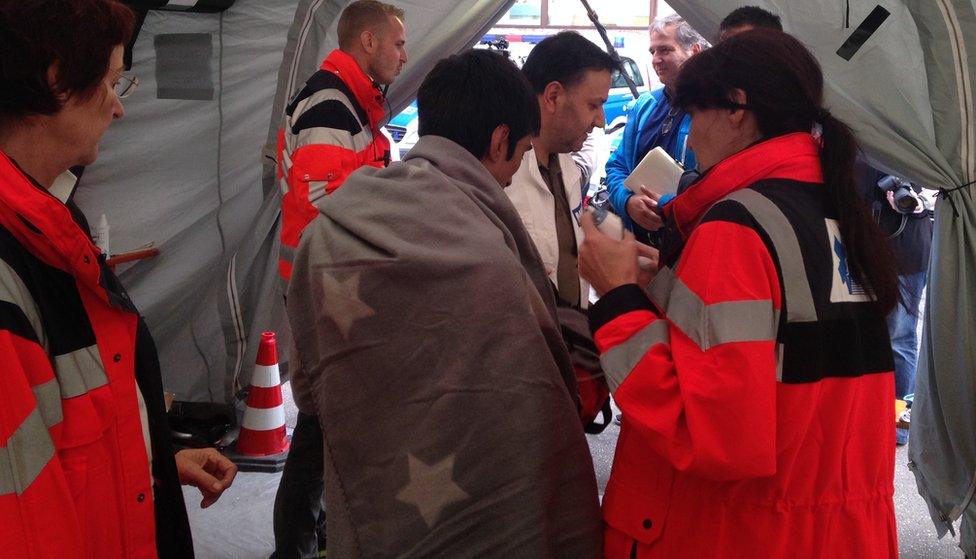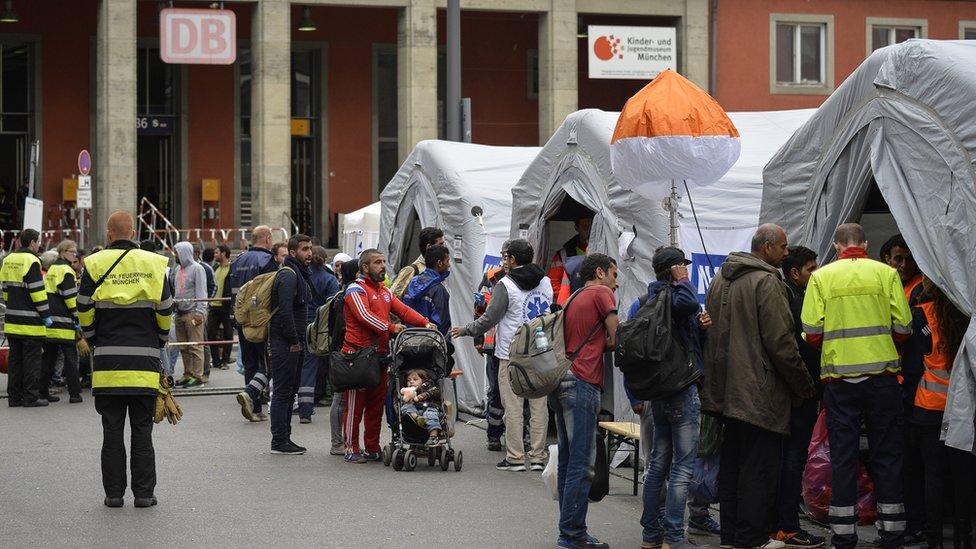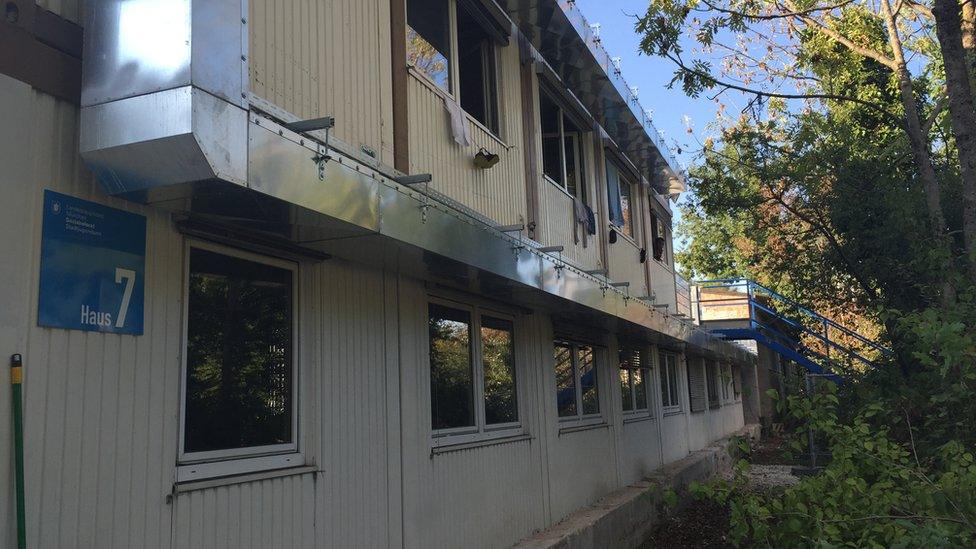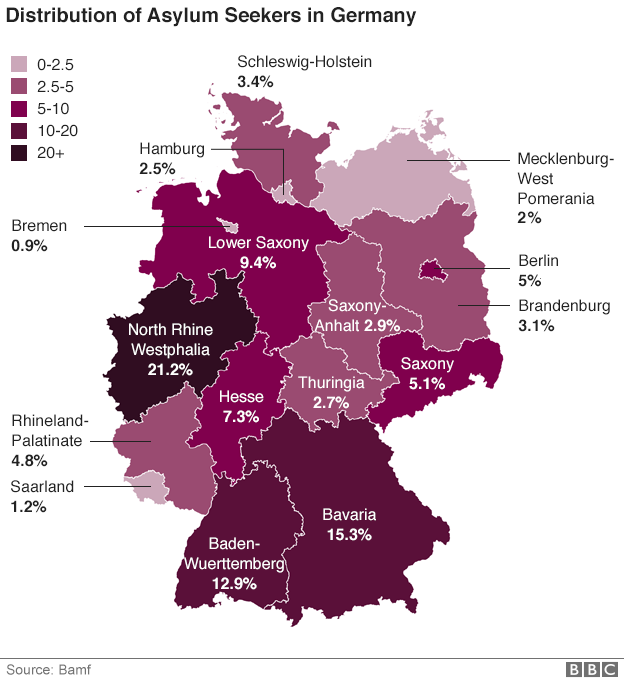Migrant crisis: Afghan boy's lonely start in Germany
- Published

Ali from Kabul travelled to Germany without his family, one of many unaccompanied minors to make the journey
Munich station has become the destination for tens of thousands of people taking the migrant route from the Balkans, and Germany has re-imposed border controls in an attempt to slow the influx down.
Many of those arriving are children who have travelled long distances without their families.
One was Ali, a 15-year-old unaccompanied Afghan boy from Kabul, who got off the train in Munich, at the end of an arduous journey by land and sea.
He had come with a group of young friends from Afghanistan, all of them apparently without their families.
They had travelled overland to Turkey, then by boat to Greece, across the Western Balkans to Austria, finally reaching Germany.
Fear and fatigue
Tired and hungry, he went to the bathroom, but when he came out, his friends were nowhere to be seen in the chaos and milling crowds in the station.

New arrivals are given a basic medical check-up on arrival in Munich
Suddenly, he found himself completely alone, unable to speak German, or any other language that officials could understand.
Eventually he gathered up the courage to approach police guarding tents set up by the German Medical Disaster Relief Agency.
The police began looking for a Farsi speaker, and this was where I became involved.
Ali was given a basic medical check-up and offered food and water.
He was still shaking. Staff and volunteers wrapped a blanket around his shoulders and tried to calm him down.
"I am scared of the police, I am scared they will send me back to Afghanistan," he said, crying.
Fear and fatigue were clearly visible in his eyes.

Children separated from their families
The BBC's Ben Brown spoke to desperate families in Munich who had been separated from their loved ones

German lessons
Soon, a social worker from the youth welfare office arrived and drove Ali to Haus 7, a refugee reception centre dedicated to unaccompanied minors.
More than 10,000 unaccompanied refugee children live in Germany, many of them from Afghanistan and Syria.
On the way to Haus 7, Ali gradually became calmer, and listened with fascination to the social worker talking to the Iranian taxi driver in German.
"This language sounds so strange and different," he said.
"I would love to be able to speak it one day."
When the social worker told him he would be given German lessons, a smile appeared on Ali's face for the first time since his arrival in Munich.

Ali will spend a few nights at Haus 7, before being moved to accommodation where he will learn basic German
The refugee centre is in a former army barracks. Trees line the leafy green lanes around it and, as the car pulled in, boys were playing basketball on a court nearby.
As he entered Haus 7, Ali was greeted by a Kurdish care-worker, in his mid-twenties, who assured him that there were many other Afghan boys there and that he would soon make friends.
Ali's next step was registration and further basic medical examination, to check for possible bullet wounds or contagious diseases.
At some stage his age will also be determined. German officials say many young asylum seekers lie about how old they are, as minors are guaranteed refugee status.
Ali will spend a few nights at Haus 7, until he is allocated temporary accommodation, where he will spend three months in a "clearing programme" to determine his needs: what kind of education or vocational training he should have, and whether he needs psychological counselling.
Many children experience such pain and hardship during their journey that they resort to self-harm.
His days will be structured and he will be given lessons in basic German. And after three months, a permanent place will be found for him to live.
Germany was the main EU destination for Afghan asylum seekers last year, and nearly 70% of those applicants were granted permission to stay, the European Asylum Support Office (EASO) reported, external.
